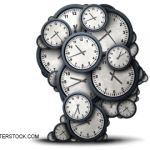 Rheumatologists are in high demand, with tight schedules and back-to-back patient visits. Often, any breaks in a rheumatologist’s busy schedule are spent working with insurance companies to justify coverage for patient treatment. These realities of care are contributing to burnout, leaving rheumatologists stretched thin, emotionally drained and risking personal health.
Rheumatologists are in high demand, with tight schedules and back-to-back patient visits. Often, any breaks in a rheumatologist’s busy schedule are spent working with insurance companies to justify coverage for patient treatment. These realities of care are contributing to burnout, leaving rheumatologists stretched thin, emotionally drained and risking personal health.
Awareness of the burnout epidemic is helping physicians find better ways to protect themselves, and the No. 1 safeguard from burnout is to build resilience. Resilience is a way to increase one’s physiological, mental and emotional capacity by withstanding stress and using that stress to one’s advantage, according to Natalie Johnson, MS, a health and wellbeing consultant.
Ms. Johnson specializes in training physicians to avoid burnout. She shares three key ways a busy rheumatologist can improve their professional performance by building and maintaining resilience.
1. Practice Micro-Recovery
Just as a professional athlete needs to condition and recover to maintain optimum performance, healthcare professionals working in a high-intensity environment need regular recovery on a physical, emotional and psychological level to maintain their high-energy output.
“Micro-recovery is essential for rheumatologists because emotions are contagious, and working with patients living with chronic conditions can mean continued exposure throughout the day to intense and even negative emotions,” Ms. Johnson explains. “These negative emotions can decrease overall performance, [affect] conversations and relationships in a negative way, and eventually lead to burnout.”
Rheumatologists who practice self-awareness techniques and self-regulation with micro-recovery strategies can reverse negative emotions and drive positive sustainable performance. Micro-recovery strategies are quick ways to refocus, such as taking a deep breath every time you touch a doorknob.
Another micro-recovery trick: Ms. Johnson recommends taking a one- to three-minute reset in between each patient visit. This pause enables physicians to practice mindfulness rather than just automatically moving on to the next patient. “Think about the patient conversation you just left, and then reset. Mentally get ready for the next patient,” she says. “This [reset] gives [the rheumatologist] time to check in on how they feel emotionally, check their mental focus and mentally prepare for the next patient.”
Don’t forget to laugh, because laughter is a very powerful emotional recovery tool, Ms. Johnson advises. “Saving a few funny stories, videos or statements to glance at when you are feeling emotionally drained can [provide] a quick recharge.”
The key to making micro-recovery work is to be consistent and intentional.
2. Learn How to Reframe Stress
Stress can actually help rheumatologists build resiliency. Much like weight training helps build muscle, stress can help a person gain perspective and build the resiliency to withstand high levels of stress and still thrive.


